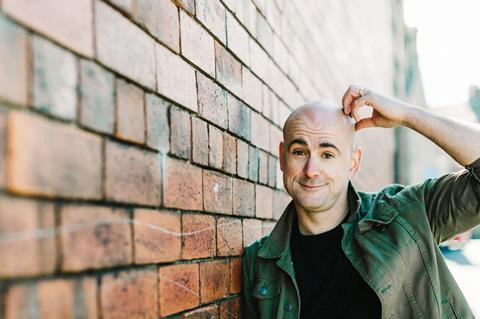‘Clean comedian’ Andy Kind says Christians can be a tough crowd – it’s time to lighten up

“How many people are we expecting tonight?” It’s a question often asked on my arrival to a gig (I’m a stand-up comedian). It’s usually me asking. On this occasion, the vicar was the one posing the question, sending a chill of confusion and dread down my spine.
He had assumed (without guile but wrongly) that when I perform at churches it’s like hiring a function room for a party; that his work was done and that ‘my people’ would do all the promotion. That isn’t how it works and so, having driven for three hours, I ploughed on with the show in front of an audience of five – the vicar, his wife, their son and two teddy bears from the crèche to fill it out a bit. One of them left before the end. Worst teddy bear’s picnic ever.
That was back in 2007. It was one of my first-ever church gigs and it was a formative disaster. In the intervening 16 years I’ve done over a thousand outreach gigs for churches and have ebbed and flowed on tides of enthusiasm, exaltation, discouragement and disdain.
Over that time I’ve seen a huge upturn in the wider church’s ability to stage quality live events (ironically, the smoke machines and lighting rigs which invite scorn when used for worship sets have made my life a lot easier). But I also have this sense that there’s an invisible glass ceiling to most church events that is probably welded on for perpetuity. I would love to say that doing comedy in/for a church gives you total freedom and the ability to express yourself. But it often doesn’t.
I love comedy that punches up, not down, but you still need to be allowed to throw a punch
When I started out as a young jokesmith, I had only recently become a Christian and felt the call from God to enter the world of comedy. For the first two years I simply trudged away on the comedy circuit, my sights set on Live at the Apollo and Mock the Week. But a feature article in this very magazine put me on the map for churches wanting to reach their communities in new ways, and so I took the road less travelled, focussing my efforts on writing material that would be accessible to both the earnest Christian and their slightly cynical friend. It has certainly helped me make a living, and I’ve been lucky (blessed, even) to see a large number of people meet God through Alpha launches and other comedy events. But it has also come at an artistic and creative cost.
Comedians aren’t modern day prophets; our job is to give the people what they want, so we adapt or go elsewhere. No comedian can play every gig. In the same way, a goal-scoring striker and a defensive wingback are both footballers, but they don’t play the same position or possess the same skill set.
I have largely refused to invest my comedy with crudeness and rudeness, and so some doors have remained closed on the circuit. I have made the position of ‘Clean Comedian’ my own. But nobody gets into the Arts to play it safe or keep things clean.
I look back on some of my comedic set pieces and consider them bland or anaemic – and for me, that’s just as gratuitous as base-level filth. “It’s so nice to have some clean comedy”, punters will say. I agree, but art isn’t good because it’s clean. I have never once tried to be clean – my stage persona is simply an extension of who I am. I have only ever tried to be funny. I love comedy that punches up and not down, but you still need to be allowed to throw a punch.
Performing in comedy clubs and at churches brings different challenges. With a secular audience you have two minutes to prove that you’re funny. With a church crowd, you have to prove that you’re safe – nice even – and then you can be funny.
I think a Christian audience is more likely to be fearful; that someone might be offended, or worried that they might laugh at ‘the wrong thing’. And I think for gigs set in churches themselves, where Christians are accustomed to candid preaching and moral teaching, any kind of extreme emotion can seem confusing.
The sense of justice and love for others that we should rightly have as followers of Jesus sometimes means we won’t laugh at something with which we don’t agree morally. Concepts such as redemption and reconciliation are predicated on ‘what ought to be’, whereas all art is about ‘what if?’, not ‘what ought?’ It’s a minor but telling distinction in how we approach comedy.
I’m in my forties now, and so I’m thinking more about legacy. My life is less anodyne than it was: I’m grumpier, balder and less married than when I started out. But I still believe that creativity is a great way to introduce people to their creator, and I’m committed to trudging on regardless. It’s no teddy bear’s picnic, but it’s better than working for a living.





































No comments yet